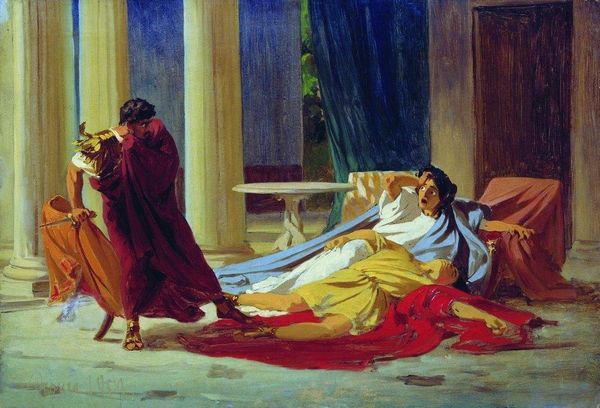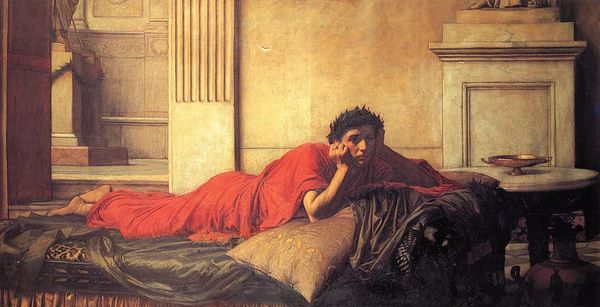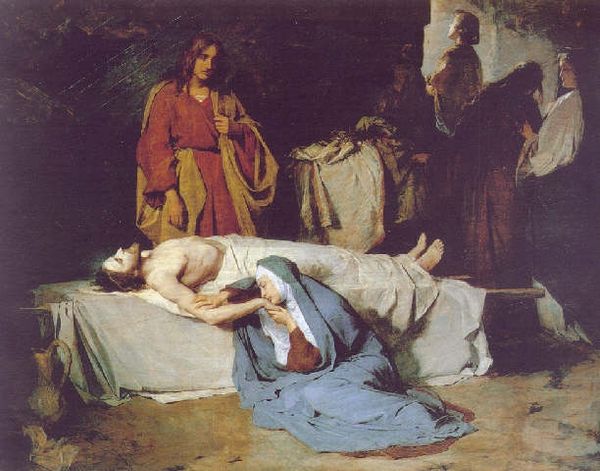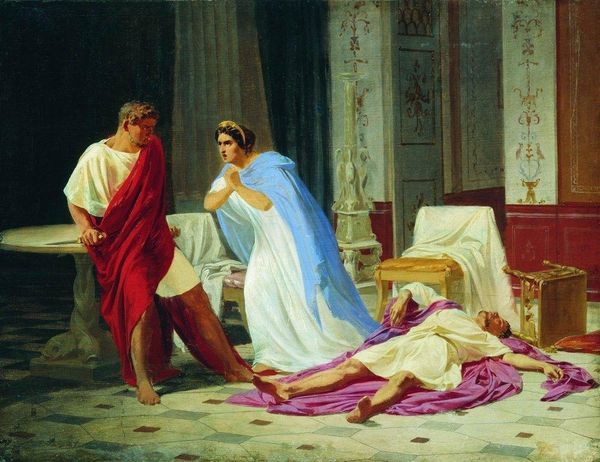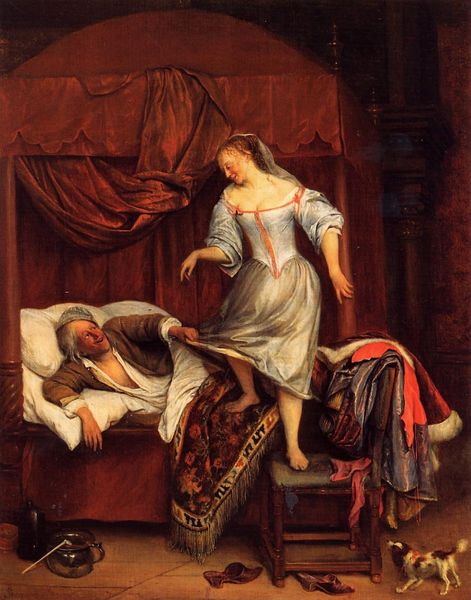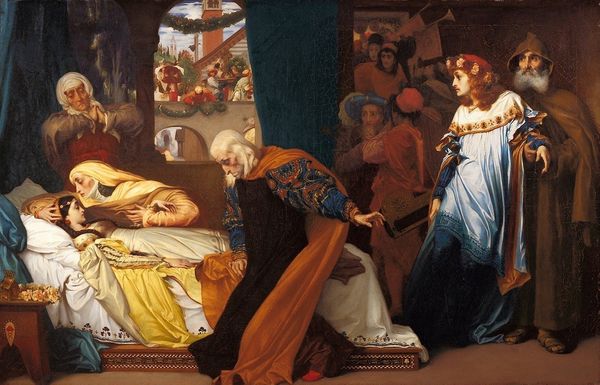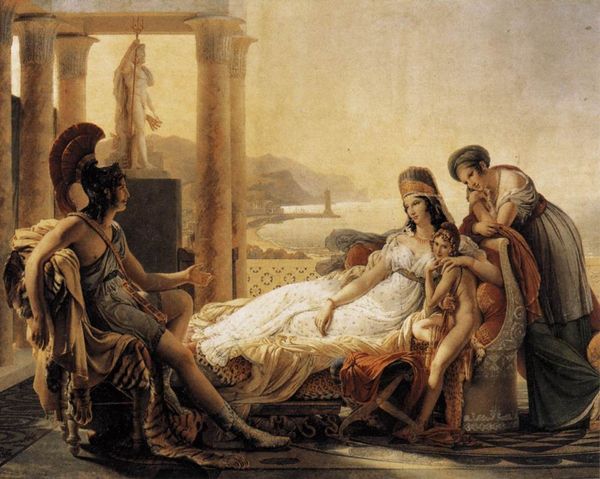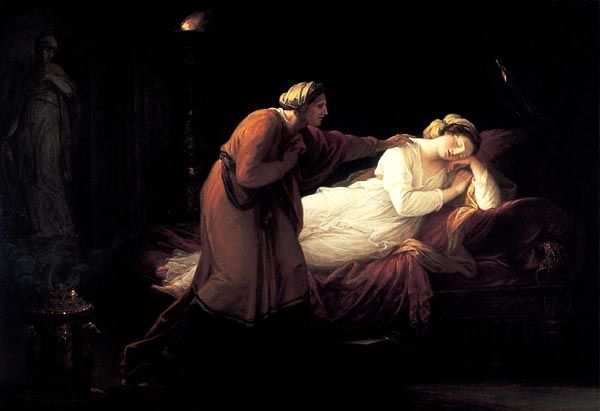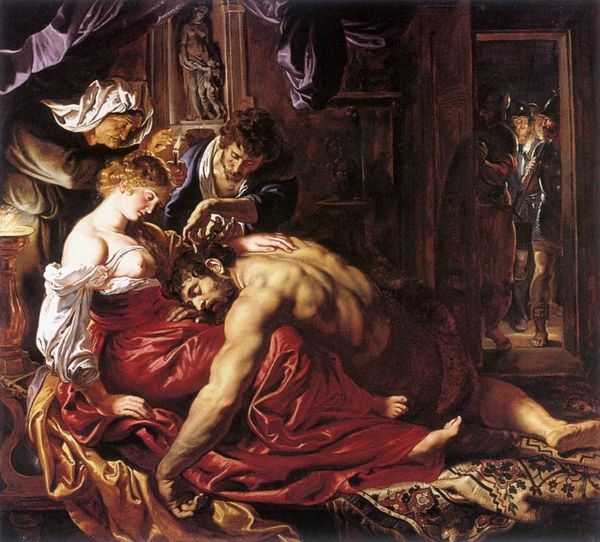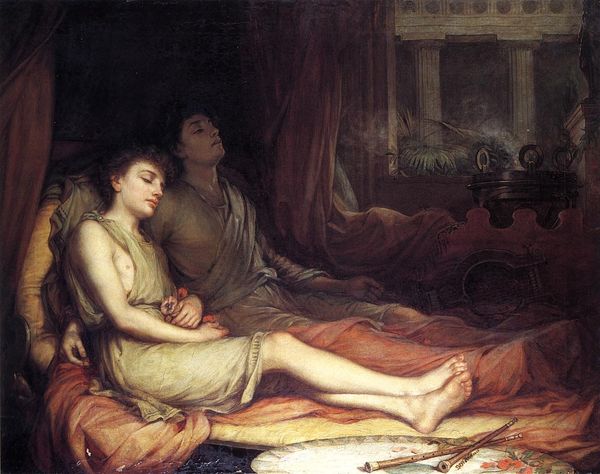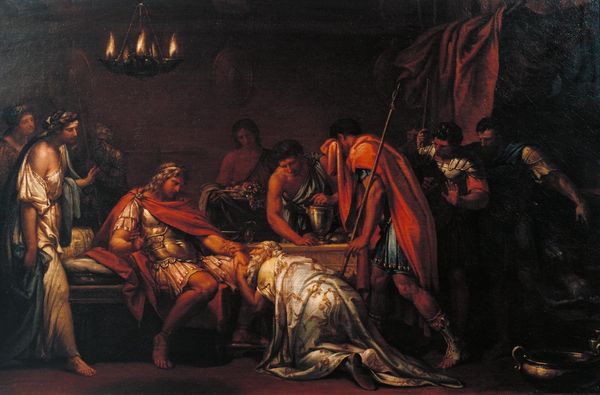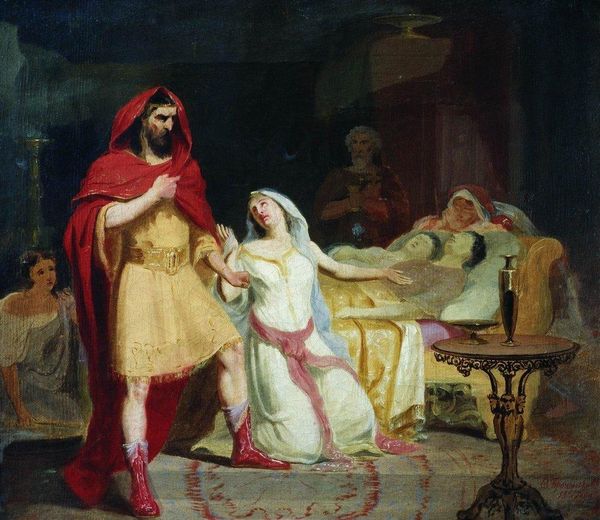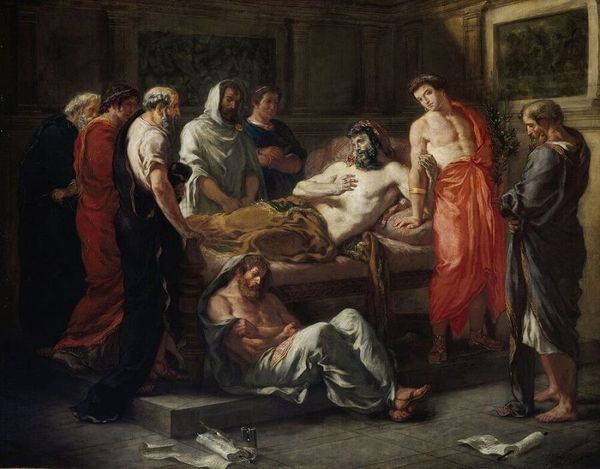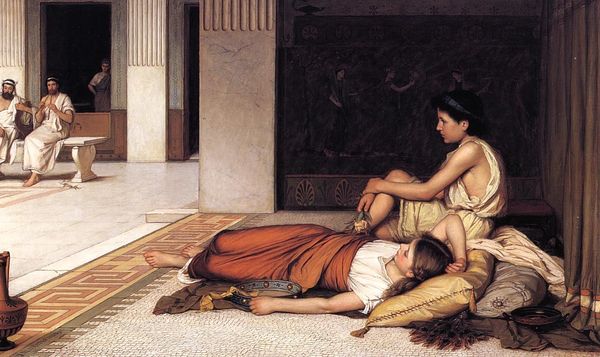
painting, oil-paint
#
portrait
#
painting
#
oil-paint
#
romanesque
#
oil painting
#
history-painting
#
portrait art
Copyright: Public domain
Curator: Here we have Jean-Paul Laurens' "The Death of Tiberius," completed in 1864, rendered in oil. Quite a sobering tableau. Editor: Yes, it is! Instantly, I’m struck by the somber mood—the dark palette, the intimacy of the scene. It feels stifling, heavy with unspoken emotion. Is he dying, truly? Or is there something more to this moment? Curator: The piece depicts the demise of Tiberius, the second Roman Emperor. While Laurens embraces the Romanesque style, what's intriguing is the potent symbolism he employs. Note the stark contrast between the draped figure and the one attending. Editor: Oh, that draped figure… he looks so frail, vulnerable, almost as if life itself is seeping out of him and into the rather muscular companion. I love how the fabrics feel heavy yet fluid. Is the companion trying to feel his pulse or simply gripping his hand in anticipation? Curator: Indeed. That leads us to consider the psychology inherent in the piece. Some art historians read the attendant as Caligula, Tiberius’s successor. And it’s worth noting the potential implication – maybe Tiberius wasn't dying as claimed, prompting speculation about foul play in his last moments to facilitate Caligula's ascent. Editor: See, it's this subtle uncertainty that grabs me! This is a really masterful use of ambiguity – he isn’t just recording a death; he’s whispering a whole nest of political intrigue into the painting! You have to question everything. Was the death natural or convenient? And for whom? The draped, sickly emperor certainly isn’t revealing any secrets now. Curator: Absolutely. Consider, too, that such paintings also served as cautionary tales. They resonated within a society grappling with its own power structures and moral dilemmas. Historical events, transformed into art, offer enduring mirrors to ourselves. Editor: I guess this work really shows the eternal chess game people play, the struggle between power and powerlessness that repeats across the ages. It leaves you a bit haunted, pondering not just what happened, but the countless ways it could have.
Comments
No comments
Be the first to comment and join the conversation on the ultimate creative platform.
